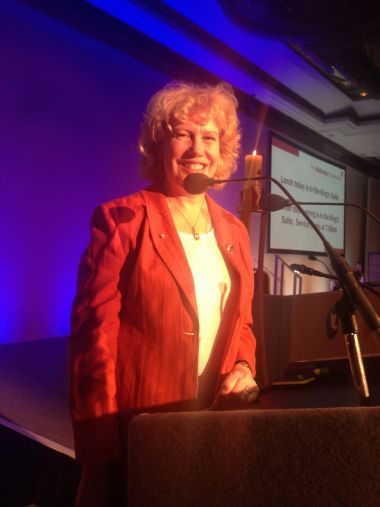Forget politicians 'doing God', churches must learn how to 'do politics'

Politicians have recently been making waves for "doing God".
Now church members must learn how to do politics if they want to influence national policy or at the grass roots, members of the Methodist Church were told.
A senior Labour politician urged the Methodist conference to learn better how to talk to their MPs, something she said the churches are in general "not that good at."
Meg Munn, the Labour Co-operative MP for Sheffield Heeley who is standing down at the next election, and who leads the Methodist all-party parliamentary group, said Parliament had a higher proportion of people of faith than the general population, although admitted she said she knew of no research to back up the claim.
She said the key to getting a message through to the corridors of power was "understanding" her life and that of her 649 parliamentary colleagues.
MPs would always be interested to learn what a church is doing to improve the lives of the people on whose vote they depend, she said. The best day to catch most of them was a Friday, when they tend to be in their constituencies.
"I firmly believe that there is a higher proportion of people of faith in Parliament than in the population as a whole." But being a lifelong churchgoer or synagogue member did not mean an MP understood how faith organisations worked.
And most MPs gave little or no thought to the churches or the issues facing them. "If you want to be higher up the priority, if you want to engage with the problems that are bothering you, invite them to visit you."
The conference, the Methodist Church's governing body, continues into next week.
On Wednesday the 306 members will debate same-sex marriage and civil partnerships.
A report to the conference recommends that the Church's definition of marriage as between a man and a woman should not be revisited at this point but that there should be a "two-year period of listening, reflection and discernment about relationships on a much wider basis, based upon thinking about living with contradictory convictions and the nature of the authority of the Bible."
The report adds: "Within that context, there would be exploration of the implications of the divergence between the Methodist Church's teaching on marriage and the legal definition of marriage, including particularly the missional aspects. The question of whether to readdress the Church's definition would then be returned to in the light of this process."
The report hints at the possibility that the church might then consider whether to "opt in" to same-sex marriage, as it is entitled to in law, once the two-year consultation process is over.











